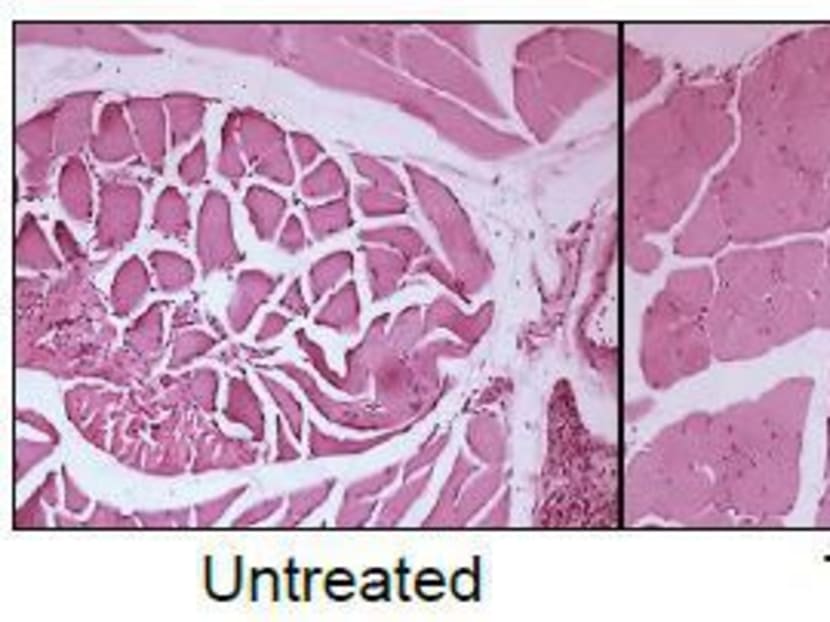Scientists find way to help cancer patients suffering from terminal weight loss
SINGAPORE — Scientists here have discovered a way to help cancer patients suffering from terminal weight loss, and are planning to start their first clinical trials with patients this year.
SINGAPORE — Scientists here have discovered a way to help cancer patients suffering from terminal weight loss, and are planning to start their first clinical trials with patients this year.
Cachexia, a terminal wasting syndrome, is one of the most lethal effects of cancer, which is currently the No 1 killer in Singapore.
Cachexia, which affects about 80 per cent of advanced cancer patients around the world, causes a person to suffer from severe weight loss due to the rapid, irreversible wasting of muscle mass.
The terminal wasting syndrome not only severely reduces a patient’s quality of life, but also diminishes his ability to tolerate cancer treatments such as chemotherapy, and increases the risk for secondary illnesses and infections. While little is known about how cachexia develops, it has long been assumed that excessive burning of fats by the muscles, or fatty acid oxidation, is just a side-effect of cachexia. The condition is believed to contribute to about 30 per cent of all cancer deaths globally.
However, the Singapore research team has now found that muscles were burning fat — a process known as fatty acid oxidation — too rapidly during cachexia, resulting in fatal muscle loss.
Such oxidation is thus a major route by which cachexia develops in patients, according to the scientists.
Their research, which included experiments using mice, showed that a drug that blocks fatty acid oxidation could be used to treat muscle-wasting during cachexia.
The study — which was published online in the journal Nature Medicine on May 2 — was spearheaded by Dr Ng Shyh-chang at A*STAR’s Genome Institute of Singapore (GIS), in close collaboration with Dr Teh Bin Tean and Dr Iain Tan, clinician-scientists at the National Cancer Centre Singapore (NCCS), Duke-NUS Medical School (Duke-NUS) and GIS.
Dr Tan, a medical oncologist at NCCS and a senior author of the study, said: “Based on this discovery, we are already planning our first clinical trials into cachexia, which should start this year.”
The study has been described as a national effort involving researchers from the various institutions.
Dr Teh, another senior author of the study and the NCCS’ deputy director (research), said: “This is a great example of how different institutions across the country come together harnessing their expertise and resources to solve an important medical problem. We all look forward to more fruits of such efforts.”
Professor Soo Khee Chee, the NCCS’ director, added: “This finding constitutes a critical step in understanding and treating a major health problem for cancer patients worldwide.”







